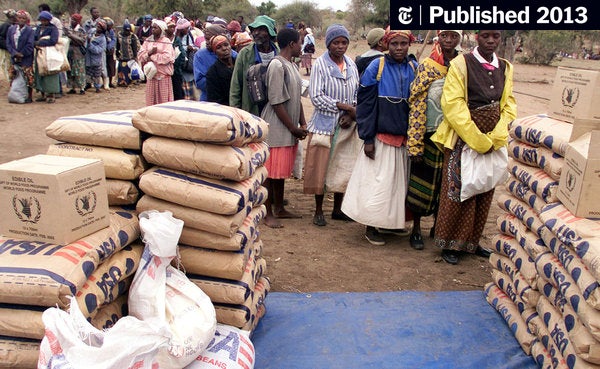
It was many years ago when I first went to India. I had completed my initial graduate programs and contemplating Phd studies when I received an offer of a two-year study and service grant.
I had never been outside the country before, and it was incredible. But I soon discovered that there was a lot that I could do besides my research project in the Punjab. A famine was raging in the Eastern state of Bihar. I was asked if I could help the CARE agency distribute food.
“Sure,” I said. “Count me in.”
I went to Patna, Bihar’s main city. My job with CARE was to control and monitor the arrival of sacks of food supplied by the US AID program. It was mostly powdered milk and bulgar wheat that could be mixed together with water to create a kind of porridge. This was surplus food in the US, for which the government was paying subsidies. It was either giving it away or wasting it. We needed it, desperately.
We had arranged with the education department to have the sacks delivered to schools throughout the famine-afflicted areas. Schools provided a great delivery system for a couple of reasons. The main one is that it was the only governmental structure that reached every village regardless of how remote it was. It provided someone to administer the food, namely the teacher or schoolmaster. And the primary recipients would be kids.
In a famine, one of the most wretched effects of malnutrition is on growing kids. If they are deprived of sufficient nourishment at an early age, even if their bodies survive, their brains might be affected. Famine could create a generation of mentally deficient people. Pregnant and nursing mothers were high on the list of those who would be served first. We were feeding eight million a day, one of the largest hot-meal programs ever. The need was urgent.
When I surveyed the village distribution centers, I discovered there was another organization that was feeding people with the same sacks of US AID powdered milk and wheat. They had a different approach, however. Instead of just handing out the food, which sometimes could create a chaotic mob scene, they organized food-for-work projects. They also utilized the school system, but the schoolmaster, along with Indian volunteers, would round up able-bodied men to work. They were employed to dig tube wells to get water, build dams as catchments for future rain, and construct roads and schools. They were paid in food for their families.
This is smart, I said to myself. Who are these guys?
They were Gandhians, it turned out. The Gandhian Sarvodaya movement, “Service to All,” was prominent in this part of India. In Patna, the leading Gandhian activist, Jayprakash Narayan, set up an office, recruited volunteers, and administered this expanding innovative program.
I left CARE and joined JP Narayan. I was the only foreigner in his Patna ashram, and fortunately I had learned enough Hindi to fit in. Most of my Indian colleagues spoke English as well as Hindi so they nicely helped translate when I got stuck. JP became a mentor and father figure to me, and I came to appreciate why he is regarded as one of India’s great leaders. I became one of his Gandhian followers.
My job was to help coordinate the student volunteers from Indian universities. I also reached out to the US Peace Corps program that was active in Bihar at the time, and arranged for their volunteers to join our group in mixed teams of American and Indian students to monitor the food-for-work projects in the villages.
It was exhausting. But it was also rewarding on so many levels. Even when I was bone tired at the end of the day I would think of how many people we had fed, and how many lives we may have saved.
Sure, CARE, and JP Narayan and his Gandhians, and all the other rescue agencies deserve a lot of the credit for helping to save people in the famine. But we could not have done it without the thousands of sacks of powdered milk and wheat from US AID. They were literally life-savers.
Today as I write this, the Trump White House has terminated this aid around the world. Immediately I thought of what would have happened in Bihar if they had done that in the midst of our relief work. If our supply of food was suddenly turned off, people could die. And then I realized that right now across the world in similar desperate situations suddenly the stream of life-giving aid was ended.
It was a cruel and thoughtless act. Did Trump and his minions have any sense of the tragic effects of their bizarre and capricious decision? And will we just sit back and let this suffering happen without some reaction? I look for answers.
